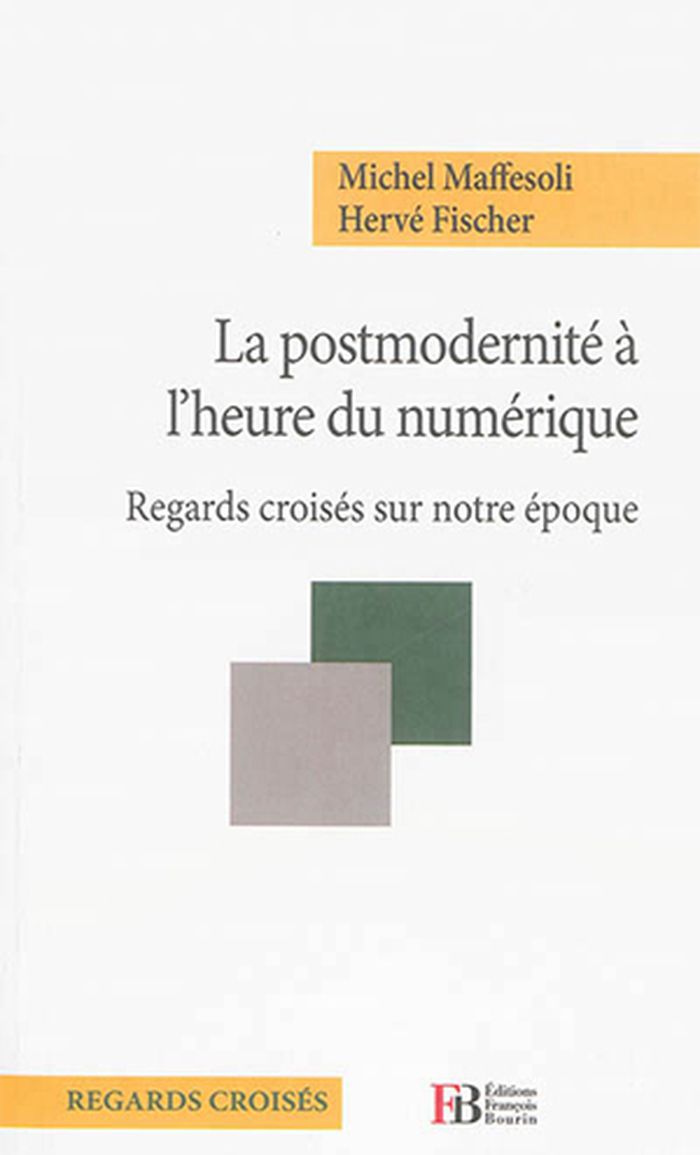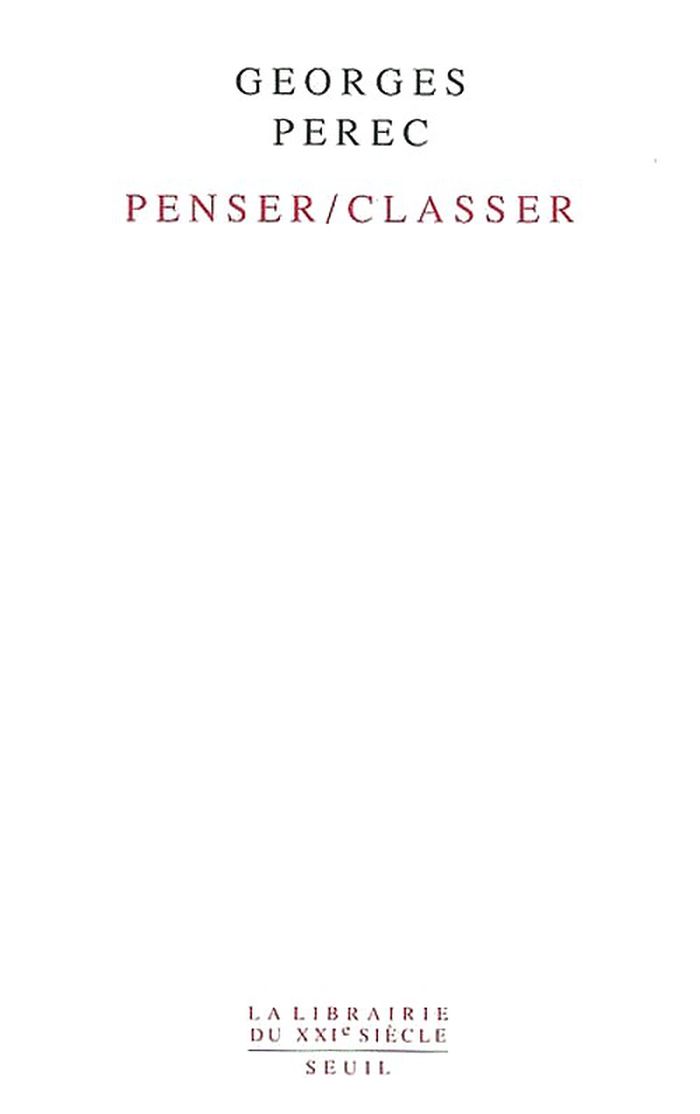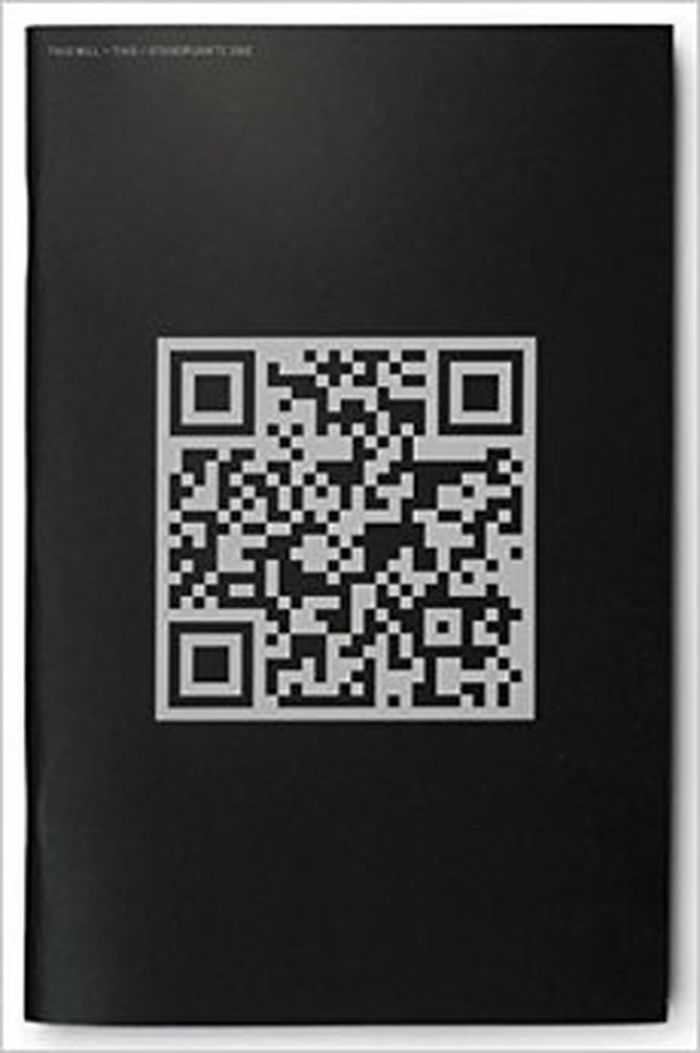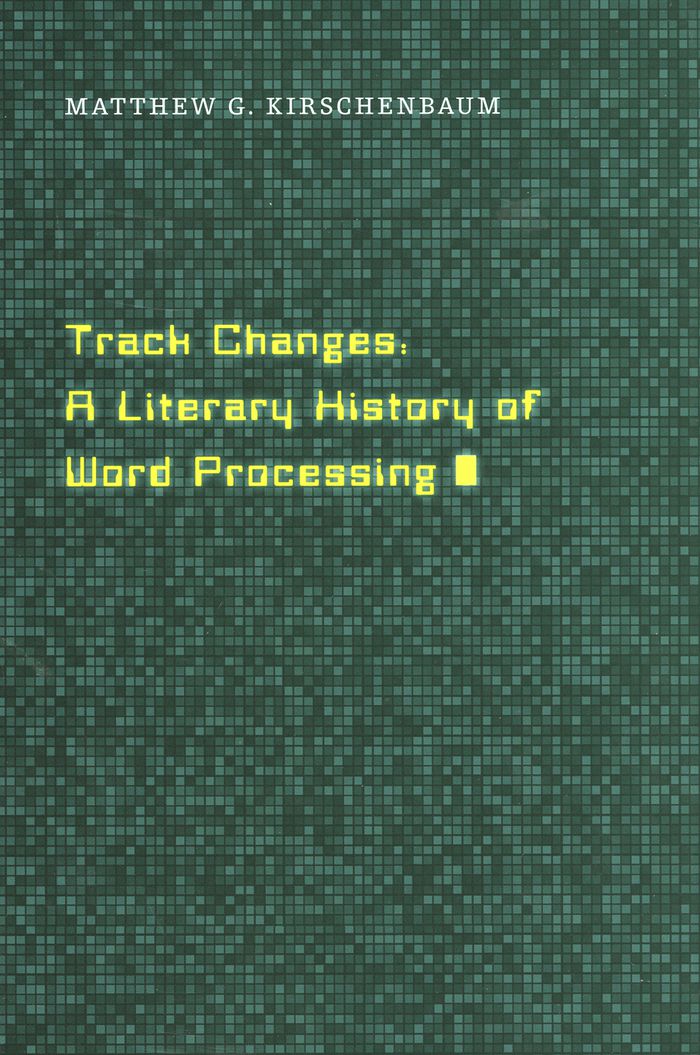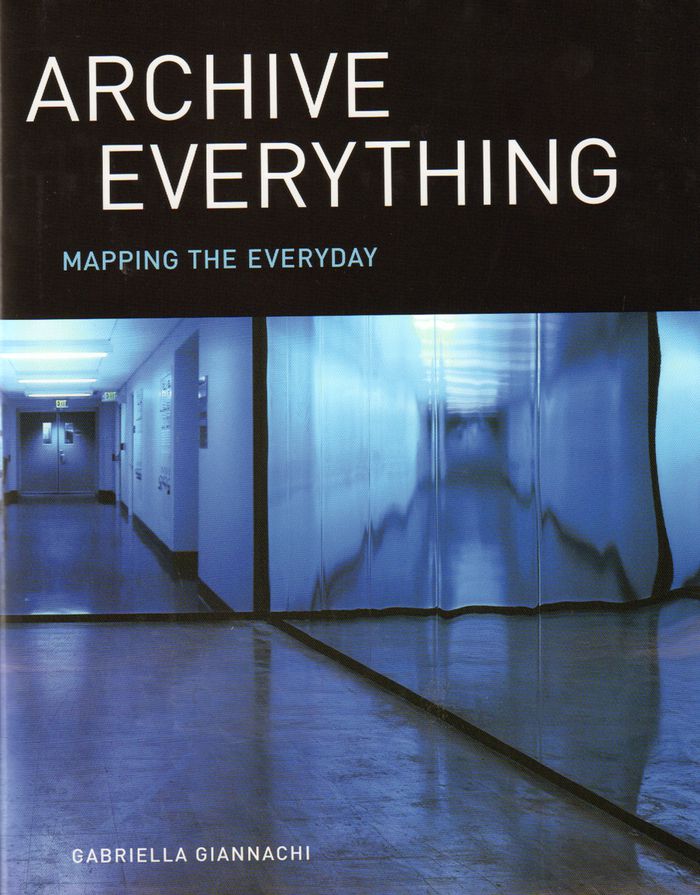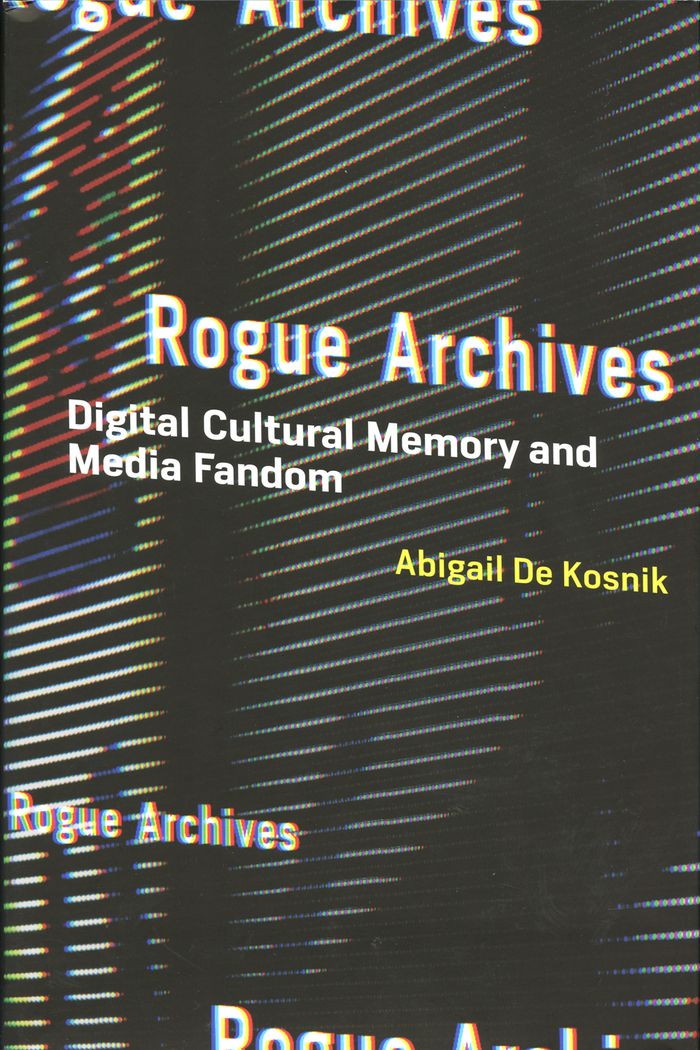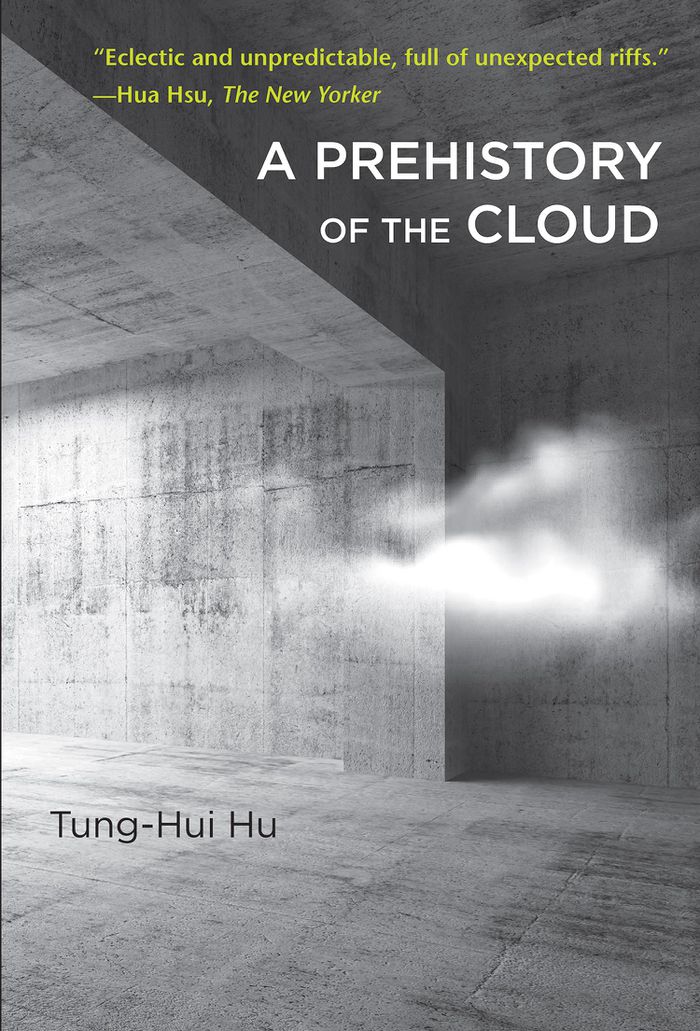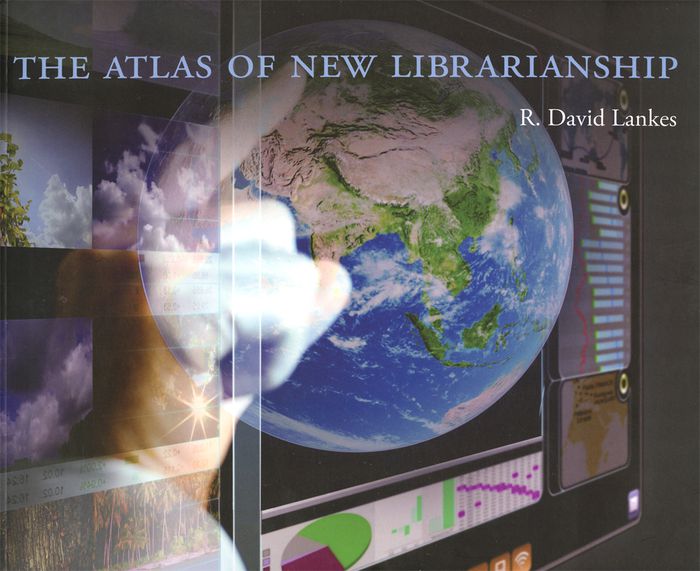$37.95
(disponible sur commande)
Résumé:
Les deux intellectuels débattent de leur vision du numérique et de ses impacts positifs ou négatifs sur le monde à venir. Si pour M. Maffesoli, les nouvelles technologies ne constituent qu'une étape dans la structuration de la société, elles représentent l'avenir de l'homme aux yeux de l'artiste et philosophe canadien H. Fischer.
avril 2016
La postmodernité à l'heure du numérique : regards croisés sur notre époque
Actions:
Prix:
$37.95
(disponible sur commande)
Résumé:
Les deux intellectuels débattent de leur vision du numérique et de ses impacts positifs ou négatifs sur le monde à venir. Si pour M. Maffesoli, les nouvelles technologies ne constituent qu'une étape dans la structuration de la société, elles représentent l'avenir de l'homme aux yeux de l'artiste et philosophe canadien H. Fischer.
Penser / Classer
$29.95
(disponible sur commande)
Résumé:
Que me demande-t-on, au juste ? Si je pense avant de classer ? Si je classe avant de penser ? Comment je classe ce que je pense ? Comment je pense quand je veux classer ? [...] Tellement tentant de vouloir distribuer le monde entier selon un code unique ; une loi universelle régirait l'ensemble des phénomènes : deux hémisphères, cinq continents, masculin et féminin,(...)
Penser / Classer
Actions:
Prix:
$29.95
(disponible sur commande)
Résumé:
Que me demande-t-on, au juste ? Si je pense avant de classer ? Si je classe avant de penser ? Comment je classe ce que je pense ? Comment je pense quand je veux classer ? [...] Tellement tentant de vouloir distribuer le monde entier selon un code unique ; une loi universelle régirait l'ensemble des phénomènes : deux hémisphères, cinq continents, masculin et féminin, animal et végétal, singulier pluriel, droite gauche, quatre saisons, cinq sens, six voyelles, sept jours, douze mois, vingt-six lettres. Malheureusement ça ne marche pas, ça n'a même jamais commencé à marcher, ça ne marchera jamais. N'empêche que l'on continuera encore longtemps à catégoriser tel ou tel animal selon qu'il a un nombre impair de doigts ou des cornes creuses.
This will - this
$20.00
(disponible en magasin)
Résumé:
The 2D bar code is disturbing and exciting because it is legible at an aesthetic level while remaining illegible at the level of content. What can we make of its linkages between logistics, cryptography, and space?
janvier 2009
This will - this
Actions:
Prix:
$20.00
(disponible en magasin)
Résumé:
The 2D bar code is disturbing and exciting because it is legible at an aesthetic level while remaining illegible at the level of content. What can we make of its linkages between logistics, cryptography, and space?
$34.00
(disponible sur commande)
Résumé:
'Track Changes' balances the stories of individual writers with a consideration of how the seemingly ineffable act of writing is always grounded in particular instruments and media, from quills to keyboards. Along the way, we discover the candidates for the first novel written on a word processor, explore the surprisingly varied reasons why writers of both popular and(...)
Track changes: a literary history of word processing
Actions:
Prix:
$34.00
(disponible sur commande)
Résumé:
'Track Changes' balances the stories of individual writers with a consideration of how the seemingly ineffable act of writing is always grounded in particular instruments and media, from quills to keyboards. Along the way, we discover the candidates for the first novel written on a word processor, explore the surprisingly varied reasons why writers of both popular and serious literature adopted the technology, trace the spread of new metaphors and ideas from word processing in fiction and poetry, and consider the fate of literary scholarship and memory in an era when the final remnants of authorship may consist of folders on a hard drive or documents in the cloud.
$57.50
(disponible sur commande)
Résumé:
The book "Writingplace: investigations in architecture and literature" marks a step forward in an emerging debate on literary means in architecture. It offers a series of reflections on written language as a crucial element of architecture culture, and on the potential of using literary methods in architectural and urban research, education and design. For everyone(...)
Writingplace: investigations in architecture and literature
Actions:
Prix:
$57.50
(disponible sur commande)
Résumé:
The book "Writingplace: investigations in architecture and literature" marks a step forward in an emerging debate on literary means in architecture. It offers a series of reflections on written language as a crucial element of architecture culture, and on the potential of using literary methods in architectural and urban research, education and design. For everyone interested in the transdisciplinary encounters between architecture and literature, the book offers both theoretical contributions that address notions such as narrative and literary imagination, and contemporary explorations regarding the operability of literary approaches. Writingplace includes contributions by experts in the fi eld such as Bart Keunen, Alberto Pérez Gómez, Wim van den Bergh, Klaske Havik, Katja Grillner and Wim Cuyvers.
Fantasies of the library
$32.95
(disponible sur commande)
Résumé:
''Fantasies of the Library'' lets readers experience the library anew. The book imagines, and enacts, the library as both keeper of books and curator of ideas--as a platform of the future. One essay occupies the right-hand page of a two-page spread while interviews scrolls independently on the left. Bibliophilic artworks intersect both throughout the book-as-exhibition. A(...)
septembre 2016
Fantasies of the library
Actions:
Prix:
$32.95
(disponible sur commande)
Résumé:
''Fantasies of the Library'' lets readers experience the library anew. The book imagines, and enacts, the library as both keeper of books and curator of ideas--as a platform of the future. One essay occupies the right-hand page of a two-page spread while interviews scrolls independently on the left. Bibliophilic artworks intersect both throughout the book-as-exhibition. A photo essay, "Reading Rooms Reading Machines" further interrupts the book in order to display images of libraries (old and new, real and imagined), and readers (human and machine) and features work by artists including Kader Atta, Wafaa Bilal, Mark Dion, Rodney Graham, Katie Paterson, Veronika Spierenburg, and others.
$57.95
(disponible sur commande)
Résumé:
In this publication, Gabriella Giannachi traces the evolution of the archive into the apparatus through which we map the everyday. The archive, traditionally a body of documents or a site for the preservation of documents, changed over the centuries to encompass, often concurrently, a broad but interrelated number of practices not traditionally considered as archival.(...)
Archive everything: mapping the everyday
Actions:
Prix:
$57.95
(disponible sur commande)
Résumé:
In this publication, Gabriella Giannachi traces the evolution of the archive into the apparatus through which we map the everyday. The archive, traditionally a body of documents or a site for the preservation of documents, changed over the centuries to encompass, often concurrently, a broad but interrelated number of practices not traditionally considered as archival. Archives now consist of not only documents and sites but also artworks, installations, museums, social media platforms, and mediated and mixed reality environments. Giannachi tracks the evolution of these diverse archival practices across the centuries.
$54.95
(disponible sur commande)
Résumé:
The task of archiving was once entrusted only to museums, libraries, and other institutions that acted as repositories of culture in material form. But with the rise of digital networked media, a multitude of self-designated archivists—fans, pirates, hackers—have become practitioners of cultural preservation on the Internet. These nonprofessional archivists have(...)
Rogue archives: digital cultural memory and the media fandom
Actions:
Prix:
$54.95
(disponible sur commande)
Résumé:
The task of archiving was once entrusted only to museums, libraries, and other institutions that acted as repositories of culture in material form. But with the rise of digital networked media, a multitude of self-designated archivists—fans, pirates, hackers—have become practitioners of cultural preservation on the Internet. These nonprofessional archivists have democratized cultural memory, building freely accessible online archives of whatever content they consider suitable for digital preservation. In Rogue Archives, Abigail De Kosnik examines the practice of archiving in the transition from print to digital media, looking in particular at Internet fan fiction archives.
A prehistory of the cloud
$24.95
(disponible sur commande)
Résumé:
We may imagine the digital cloud as placeless, mute, ethereal, and unmediated. Yet the reality of the cloud is embodied in thousands of massive data centers, any one of which can use as much electricity as a midsized town. Even all these data centers are only one small part of the cloud. Behind that cloud-shaped icon on our screens is a whole universe of technologies and(...)
A prehistory of the cloud
Actions:
Prix:
$24.95
(disponible sur commande)
Résumé:
We may imagine the digital cloud as placeless, mute, ethereal, and unmediated. Yet the reality of the cloud is embodied in thousands of massive data centers, any one of which can use as much electricity as a midsized town. Even all these data centers are only one small part of the cloud. Behind that cloud-shaped icon on our screens is a whole universe of technologies and cultural norms, all working to keep us from noticing their existence. In this book, Tung-Hui Hu examines the gap between the real and the virtual in our understanding of the cloud.
$54.95
(disponible en magasin)
Résumé:
Libraries have existed for millennia, but today the library field is searching for solid footing in an increasingly fragmented (and increasingly digital) information environment. What is librarianship when it is unmoored from cataloging, books, buildings, and committees? In "The Atlas of New Librarianship", R. David Lankes offers a guide to this new landscape for(...)
The atlas of new librarianship
Actions:
Prix:
$54.95
(disponible en magasin)
Résumé:
Libraries have existed for millennia, but today the library field is searching for solid footing in an increasingly fragmented (and increasingly digital) information environment. What is librarianship when it is unmoored from cataloging, books, buildings, and committees? In "The Atlas of New Librarianship", R. David Lankes offers a guide to this new landscape for practitioners. He describes a new librarianship based not on books and artifacts but on knowledge and learning; and he suggests a new mission for librarians: to improve society through facilitating knowledge creation in their communities. The vision for a new librarianship must go beyond finding library-related uses for information technology and the Internet; it must provide a durable foundation for the field. Lankes recasts librarianship and library practice using the fundamental concept that knowledge is created though conversation. New librarians approach their work as facilitators of conversation; they seek to enrich, capture, store, and disseminate the conversations of their communities.
